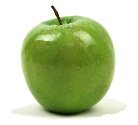



Helping you make healthy choices for you and your family

Ten Tips to Avoid Colds & Flu
3) Avoid hot, stuffy and crowded areas
In crowded areas like shops, public transport and public meetings, it is easier for infections to pass between people.
Central heating reduces our defences and affects the respiratory system by drying out the protective mucus in our nasal passages. Try to get plenty of fresh air each day and take some deep breaths to help clear your lungs.
In crowded areas like shops, public transport and public meetings, it is easier for infections to pass between people.
Central heating reduces our defences and affects the respiratory system by drying out the protective mucus in our nasal passages. Try to get plenty of fresh air each day and take some deep breaths to help clear your lungs.
4) Protective Herbs
To help maintain a healthy immune system during the winter months, taking a herbal supplement containing Echinacea may have a protective effect. The Echinacea plant, native to the US central plains has a long history of healing wounds and infections by the native Americans.
Studies show that Echinacea promotes the ability of white blood cells (part of our immune defence system) to surround and destroy bacterial and viral infection in the blood. As a preventative it is best taken for 3 weeks to build up the immune system and then take a one week break and repeat as necessary, but do not continue taking for more than eight weeks in succession.
Echinacea can also be taken at the onset of a cold or flu and continued for two weeks. Contra-indications for Echinacea are those with a progressive systemic or autoimmune disease such as TB, lupus or AIDS.
To help maintain a healthy immune system during the winter months, taking a herbal supplement containing Echinacea may have a protective effect. The Echinacea plant, native to the US central plains has a long history of healing wounds and infections by the native Americans.
Studies show that Echinacea promotes the ability of white blood cells (part of our immune defence system) to surround and destroy bacterial and viral infection in the blood. As a preventative it is best taken for 3 weeks to build up the immune system and then take a one week break and repeat as necessary, but do not continue taking for more than eight weeks in succession.
Echinacea can also be taken at the onset of a cold or flu and continued for two weeks. Contra-
Garlic has also been found to be effective at reducing the frequency of colds and flu, taken in small amounts daily.
5) Take vitamins, minerals and pro-biotics
Taking a multivitamin and mineral supplement during the winter months, when our intake of fresh fruit and vegetables is usually less, should help to reduce the risk of infection.
The mineral zinc is essential to help fight colds and provides a boost to a flagging immune system. Good food sources of zinc include meat, oysters, eggs, seafood, tofu, black-eyed beans and wheat germ.
Vitamin C is also helpful as we use up more vitamin C when our bodies are under the added stress of fighting infection. Citrus fruits and peppers are good sources of vitamin C.
Our Vitamin D levels are usually at their lowest during the winter months because the UVB rays from the sun, our main source of vitamin D, are not strong enough. Vitamin is vital to boost our immune system so a Vitamin D3 supplement is recommended during the winter months. You can check your Vitamin D levels through a blood test called 25-Hydroxy Vitamin D, available from Pulse Health Screening.
Also, pro-biotics such as lactobacillus acidophilus and bifidus, ‘friendly bacteria’ in our intestines, have been found not only to maintain a healthy digestive system but to improve the body’s defence system, too. Studies have shown that taking pro-biotic supplements can improve the body’s resistance to bacterial and viral infections.
6) Keep an eye on the weather
Viruses survive longer when the weather is moist by hanging in the air attached to water droplets. When it is cloudy and dull, there may be fewer breezes to blow the germs away so it is easier to catch colds and flu. It may take up to 10-12 days before any symptoms appear due to the long incubation period.
7) Drink plenty of fluids
We should all be drinking at least 8 glasses of water a day to maintain health, and this time of the year is even more important. Keeping hydrated helps the kidneys to function properly in flushing out the toxins in our bodies which depress our immune systems. If you are exposed to germs, being dehydrated makes your mucus drier and thicker so less able to cope against the invading bacteria and viruses. Drinking plenty of fluids will also help to flush out the infection.
8) Get plenty of sleep
Lack of sleep makes us more prone to infection. It can also make you feel stressed so you are more likely to become ill than if you are feeling happy and relaxed.
9) Exercise and activity
Regular, moderate exercise increases the number of natural killer cells in our bodies, called lymphocytes. They travel around the body scavenging for invasions of bacteria and viruses. Exercise maintains the increased levels of lymphocytes for about 36 hours afterwards, although too much exercise can actually lower these levels. About half an hour of brisk walking, or the equivalent, five days a week is beneficial.
10) Don’t Smoke
Statistics show that heavy smokers are more prone to severe and more frequent colds than non-smokers. Smoke dries out nasal passages and paralyses the delicate hairs that line the nose and lungs that sweep cold and flu viruses out of the body.
Taking a multivitamin and mineral supplement during the winter months, when our intake of fresh fruit and vegetables is usually less, should help to reduce the risk of infection.
The mineral zinc is essential to help fight colds and provides a boost to a flagging immune system. Good food sources of zinc include meat, oysters, eggs, seafood, tofu, black-
Vitamin C is also helpful as we use up more vitamin C when our bodies are under the added stress of fighting infection. Citrus fruits and peppers are good sources of vitamin C.
Our Vitamin D levels are usually at their lowest during the winter months because the UVB rays from the sun, our main source of vitamin D, are not strong enough. Vitamin is vital to boost our immune system so a Vitamin D3 supplement is recommended during the winter months. You can check your Vitamin D levels through a blood test called 25-
Also, pro-
6) Keep an eye on the weather
Viruses survive longer when the weather is moist by hanging in the air attached to water droplets. When it is cloudy and dull, there may be fewer breezes to blow the germs away so it is easier to catch colds and flu. It may take up to 10-
7) Drink plenty of fluids
We should all be drinking at least 8 glasses of water a day to maintain health, and this time of the year is even more important. Keeping hydrated helps the kidneys to function properly in flushing out the toxins in our bodies which depress our immune systems. If you are exposed to germs, being dehydrated makes your mucus drier and thicker so less able to cope against the invading bacteria and viruses. Drinking plenty of fluids will also help to flush out the infection.
8) Get plenty of sleep
Lack of sleep makes us more prone to infection. It can also make you feel stressed so you are more likely to become ill than if you are feeling happy and relaxed.
9) Exercise and activity
Regular, moderate exercise increases the number of natural killer cells in our bodies, called lymphocytes. They travel around the body scavenging for invasions of bacteria and viruses. Exercise maintains the increased levels of lymphocytes for about 36 hours afterwards, although too much exercise can actually lower these levels. About half an hour of brisk walking, or the equivalent, five days a week is beneficial.
10) Don’t Smoke
Statistics show that heavy smokers are more prone to severe and more frequent colds than non-
Disclaimer: The information in this article should not be regarded as medical advice. If you are receiving medical treatment or taking prescribed medication, you are advised to consult your GP or health practitioner before making any changes to your diet or lifestyle.

Colds and Flu are caused by viruses and although it is possible to catch them all year round, they are usually more prevalent in the colder months. Most people have at least one cold each year but flu is less common and tends to affect those with a low immune system. Here are a few simple steps that can be taken to minimise your risks of catching colds and flu this season.
1) Keep warm
1) Keep warm
Shivering depresses the immune system which makes us more likely to catch colds. We lose up to 30% of our body heat through our heads, so wear a hat.
2) Wash your hands
2) Wash your hands
Although most viruses are carried in the air, they can be transmitted by physical contact and enter the body when infected hands touch vulnerable parts like our eyes, mouth and nose.
Washing your hands often, and drying them on paper towels or frequently laundered hand towels can significantly reduce your chance of catching a virus.
Washing your hands often, and drying them on paper towels or frequently laundered hand towels can significantly reduce your chance of catching a virus.
| Your Health Your Future |
| Controversial Ingredients |
| Nutritional State |
| Parent and Child |
| Microwave Ovens |
| Recommended Books |
| Skin Absorption |
| Sodium Lauryl Sulphate |
| Propylene Glycol |
| DEA, MEA, TEA |
| Chemical Calculator |
| Fluoride |
| Aspartame |
| Fluoridation |
| Water Filtration |
| Planning a Pregnancy |
| Pregnancy Care |
| Post Pregnancy Care |
| Amazon Books |
| EBooks |
| About Us |
| Health Services |
